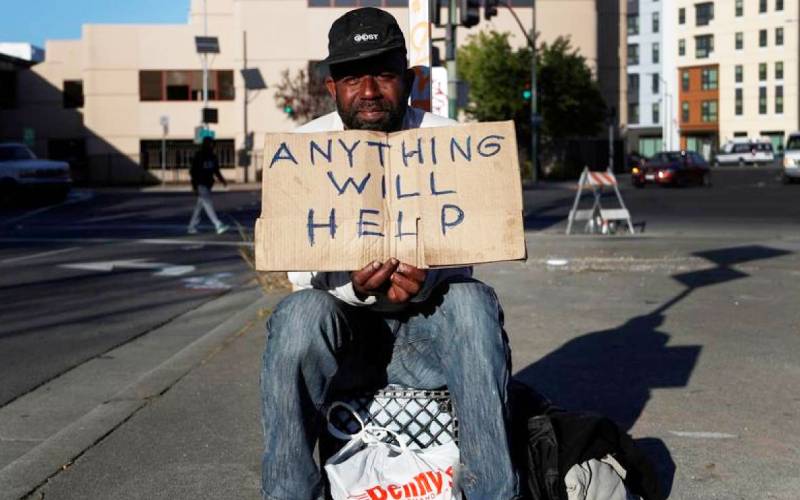×
The Standard e-Paper
Stay Informed, Even Offline

Daniel Johnson, 48, who says he has been homeless for 10 years, sits with a cardboard sign in Oakland, California, US, on March 4, 2020. [Reuters]
Governor Gavin Newsom has ordered California's 40 million residents to stay at home. That's a big problem for the state's estimated 108,000 homeless who live on the streets.